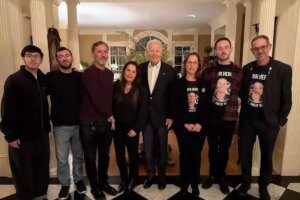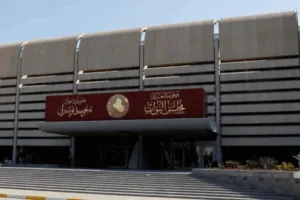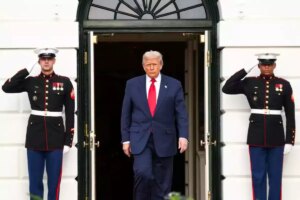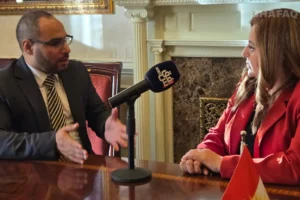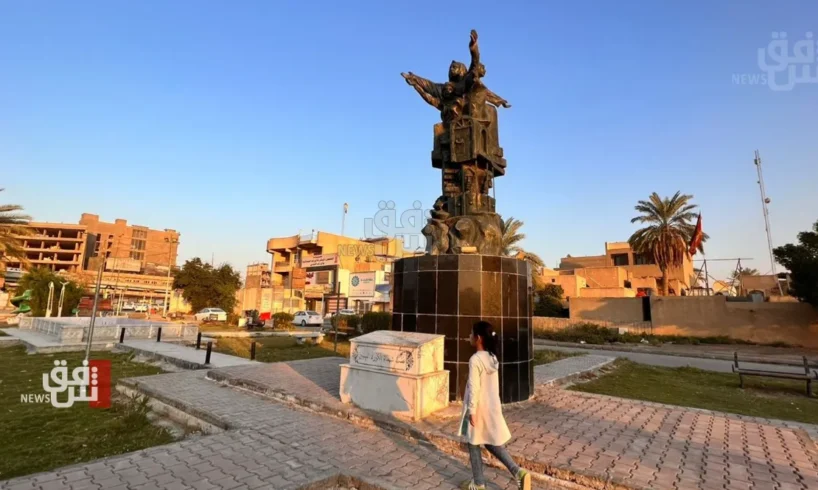
Shafaq News
The Feyli
Kurds, a Shiite Kurdish community long marginalized and persecuted, are
preparing to take part in Iraq’s parliamentary elections on November 11, 2025,
with their political representation still under dispute.
Among Iraq’s
oldest Kurdish groups, the Feylis have lived for centuries in Baghdad, Wasit,
Diyala, Khanaqin, and Mandali. Once renowned for their contributions to trade,
education, and culture, they endured decades of systematic exclusion,
particularly under former presidents Ahmed Hassan al-Bakr (1968–1979) and
Saddam Hussein (1979–2003).
During that
period, an estimated half a million Feylis were forcibly deported to Iran,
their properties confiscated, and citizenship revoked under allegations of
“Iranian origin.” At least 15,000 young Feylis disappeared in prisons, their
fate remaining unknown.
Iraq’s High
Tribunal later recognized the persecution as an act of genocide. Yet more than
twenty years after the fall of Saddam’s regime, crucial issues such as
citizenship restoration, compensation, and property restitution remain
unresolved, leaving many Feylis still seeking justice and acknowledgment.
Although
only one parliamentary quota seat has been allocated to the Feyli Kurds in
Wasit province, Iraq’s new single-constituency electoral system allows voters
nationwide to support the Feyli quota candidate, potentially expanding the
community’s influence beyond its traditional strongholds.
Read more: Stateless in their homeland: The unending exile of Iraq’s Feyli Kurds
Limited
Representation
Many Feylis
question why their representation remains restricted and accuse political
groups of exploiting the quota for partisan gain. These concerns emerge as
political funding and party influence increasingly shape Iraq’s elections.
Jumana
al-Ghalai, spokesperson for Iraq’s Independent High Electoral Commission
(IHEC), explained to Shafaq News that the quota system permits any voter in
Iraq to vote for the Feyli quota candidate, not only those in Wasit,
‘’potentially strengthening candidates from within the community.’’
Some Feyli
figures view opportunity in the system. Candidate Haidar Hisham described the
quota as a strong card, highlighting that “for the first time, a young Feyli
candidate is supported by the prime minister, not by political parties — a
significant sign of change.”
“This could
benefit the Iraqi people in general and the Feylis in particular, by correcting
long-standing injustices,” he added.
Yet others
remain cautious. Candidate Haidar Ali (Abu Tara) highlighted intense
competition in Wasit, warning that political funding is skewing the process,
with some candidates backed by parties using money and influence to secure
votes.
Eight
candidates are contesting the Feyli quota seat in Wasit, including seven from
the province and one from Baghdad. “Those backed by powerful political forces
hold an unfair advantage,” Ali emphasized.
Quota Crisis
Iraq is home
to an estimated 1.5 to 2 million Feyli Kurds, yet they consider their one
parliamentary seat as “institutional discrimination.”
Feylis argue
the system does not reflect the community’s demographic weight or historical
role in Iraqi society, pointing out that other minorities, including Christians
and Yazidis, hold five or more seats. Calls are growing to revise quota
allocations based on updated demographic data rather than political
arrangements from decades ago.
Maher Rashid
al-Feyli, secretary-general of the Feyli Kurdish Front, said his group, founded
eight years ago, is fielding 15 Feyli candidates in Baghdad. He criticized
moving the quota seat from Baghdad to Wasit, arguing it “disenfranchised the
largest Feyli population center.”
Meanwhile,
Fouad Ali Akbar, adviser on Feyli affairs in Iraq’s parliament, described the
community’s representation as unequal, noting that there is only one quota seat
in parliament while Wasit’s provincial council has two and Baghdad has one —
‘’a mismatch.’’
Highlighting
the Federal Court’s earlier ruling that Feylis should receive equal treatment
alongside other minorities, he warned that parliament has not yet implemented
those decisions.
“Instead,
parties exploit the quota to place candidates who do not genuinely represent
the Feyli community.”
Read more: Honoring or ignoring? Feyli Kurds divided over Martyrs’ Day designation
Past
Influence
Since 2003,
Feyli Kurds have struggled to turn their numbers into political influence. In
the 2005 and 2010 elections, most Feyli candidates joined large Shiite or
Kurdish coalitions, including the then United Iraqi Alliance (Watani List) or
the Patriotic Union of Kurdistan (PUK). Their presence often went unnoticed,
folded into broader sectarian agendas.
Issam
al-Feyli, a political science professor at al-Mustansiriyah University,
highlighted the community’s challenge of maintaining a distinct identity,
observing that Feyli representatives in parliament “frequently became partisan
tools rather than advocates for the community’s rights.”
He argued
the group deserves at least five parliamentary seats, on par with Christians,
further proposing a “High Commission for Feyli Affairs” to protect the
community’s rights and identity within the Kurdish nation.
Disillusionment
grew through the 2014 and 2018 elections. Many young Feylis abstained,
convinced that quota seats were dominated by larger parties. By 2021, turnout
in districts such as Baghdad’s al-Karrada and Wasit’s al-Aziziya fell below 35
percent, lagging behind the national average of 41 percent, a sign of the
community’s estrangement from the political process.
For 2025,
leaders hope for a shift. Independent candidates are seeking to give Feylis a
distinct voice, aiming to turn renewed interest into tangible representation.
Groups like
the Coordination Committee of Feyli Kurds, the Feyli Kurdish Front, and
independent youth networks have intensified outreach across Baghdad, Wasit, and
Diyala, hosting forums and events to engage voters. Grassroots movements such
as Feyli Voice and Our Identity Movement are encouraging younger voters to
“transform identity into representation.”
Moreover,
social media, particularly Facebook and Telegram, has emerged as a hub for
discussion and organization among Feyli youth, while women candidates and
first-time voters are also taking a more active role than in previous
elections.
Candidate
Sara Abdullah Feyli framed her campaign as “a call to reclaim belonging —
through ballots, not slogans,” focusing on women’s rights and restoring the
community’s place within Iraq’s legal and political framework.
Despite this
renewed energy, challenges linger. Many Feylis still face hurdles in updating
citizenship records and property documents, remnants of decades-long
displacement that erased much of the community’s civil status from official
archives.
The
Balancing Vote
Ali Hussein
Quli Khan al-Feyli, a member of the Kurdistan Democratic Party (KDP),
characterized the Feylis as “the balancing vote in Iraqi politics,” underlining
their dual identity as both Kurdish and Shiite.
“In the
past, Feylis often supported major parties and movements,” he observed,
stressing that “Today, it is our community that needs support.”
For many
Feylis, the upcoming election carries significance beyond simply casting a
vote. It presents a symbolic chance to reclaim recognition and reaffirm their
role in Iraq’s political landscape. While most have regained citizenship, the
community maintains that genuine participation begins with authentic
representation in parliament.
Read more: Mass graves, missing thousands: Feyli Kurd families still seek answers
Written and
edited by Shafaq News staff.
